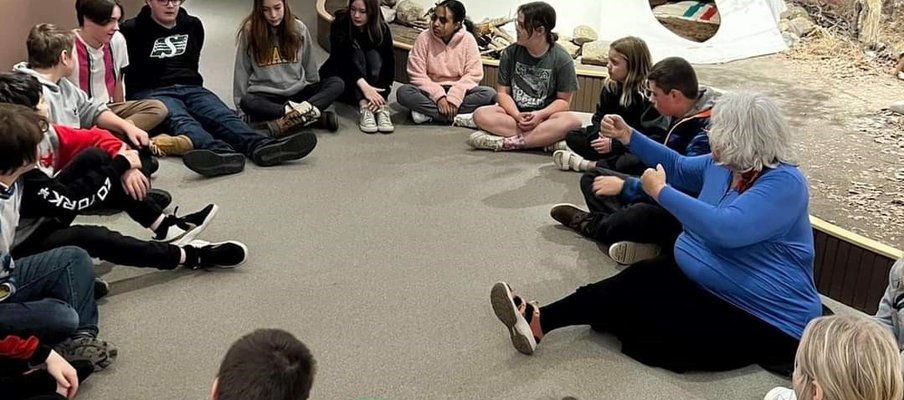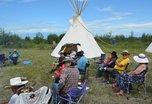Supporting Truth and Reconciliation practices: Decolonizing begins with building relationships

Related Programs

As part of its Truth and Reconciliation journey, the Moose Jaw Museum and Art Gallery (MJM&AG) embarked on a project designed to assess historic collections, share knowledge and ensure that Indigenous voices would lead the discussion and the repatriation process needed.
Over the past year, the MJM&AG has been working to address the Truth and Reconciliation Commission’s (TRC) Call to Action #67. According to Jennifer McRorie, curatorial director, MJM&AG, as part of this Call to Action, museums across Canada are called upon to decolonize traditionally colonized institutions, to ensure that Indigenous voices lead, inform and are central in establishing policies, procedures and context.
As the temporary home to an extensive collection of Indigenous objects, including a large collection of historic beadwork specific to the region, the MJM&AG wanted to work with First Nations and Métis leaders to determine the collection's future. Its new project, Connecting Indigenous Living Objects with Their Communities, invited Indigenous direction on the MJM&AG’s programming of Indigenous content and collections.
“This project is engaging Indigenous traditional knowledge keepers and Indigenous community leaders, researchers, artists and educators to collect oral histories of the Indigenous living objects within our permanent collection and link them with their originating communities and families, if possible,” McRorie explains. The project was conceived and directed through MJM&AG’s Indigenous Advisory Committee (IAC).
The Indigenous Advisory Committee also identified the important role of Indigenous women and matriarchs in this work. “[The committee] acknowledged the importance of Indigenous women in taking on leadership roles in this regard,“ says McRorie, “since they have been primarily the makers of many of the cultural objects in our collection and possess much of the oral traditions and cultural knowledge.”
Additionally, the MJM&AG wants to transfer and share traditional knowledge around the collection with children and others to build the understanding of Indigenous histories and traditions unique to the area.
Knowledge Holder, Barb Frazer and founding member, IAC, says, MJM&AG has created a safe, healing, and celebratory cultural space for the community. “[It is an] ancestral responsibility to be care-takers, and this extends to the cultural and respectful handling of the ancestor's hand-tooled objects housed within the Moose Jaw Museum and Art Gallery,” she says.
The project includes knowledge sharing through language, land, and arts-based learning that helps participants understand Indigenous peoples' relationship to the land and surrounding territory. It also includes creating new connections with the local First Nations community. According to McRorie, this is an incredibly important step for the process of repatriating the objects back into the communities they came from. “It has been very rewarding to cultivate relationships with Indigenous families, to provide access to their historic objects in the collection and see the pride of these family members in re-establishing connections with these cultural objects,” she says.
Frazer acknowledges that it takes a community to create foundational change. And with a Cree background, she is guided in her work by relationships, both within the IAC and with the external community. “We are working from a sacred place.”
The Moose Jaw Museum and Art Gallery received project funding to decolonize their collections thanks to AACL.

